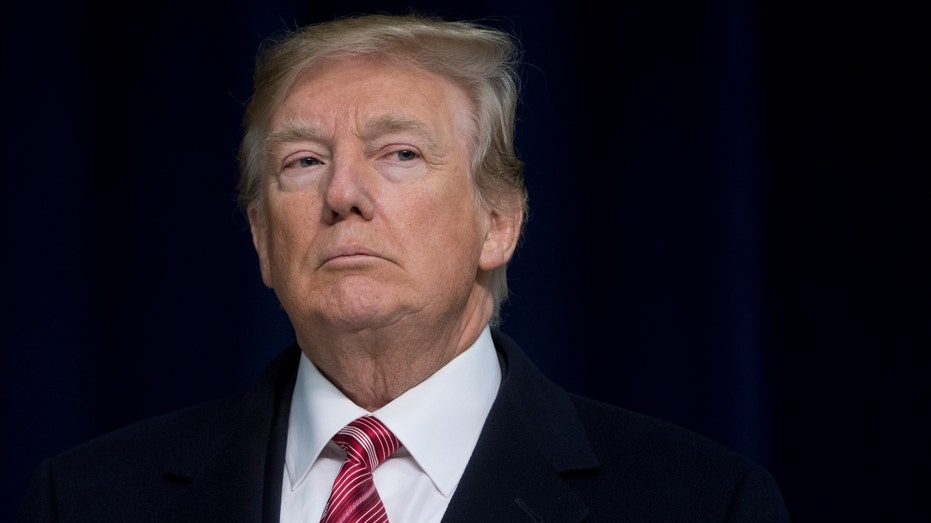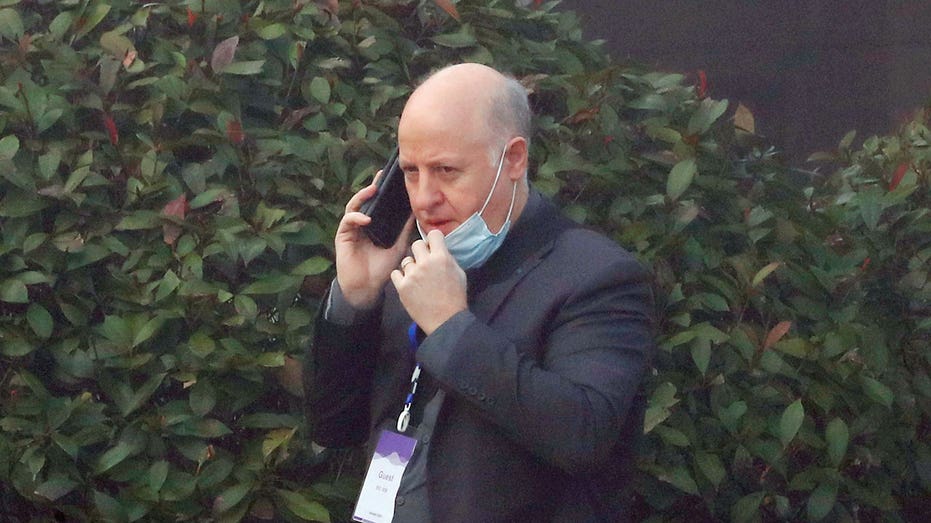Former President Donald Trump said that Republicans should say “No” to a border security deal that does not include “everything needed” to stop the flow of illegal migrants at the southern border.
“I do not think we should do a Border Deal, at all, unless we get EVERYTHING needed to shut down the INVASION of Millions & Millions of people, many from parts unknown, into our once great, but soon to be great again, Country!” Trump wrote Thursday on Truth Social.
Congressional leaders are hoping to reach a bipartisan deal that would be attached to the national security supplemental package and unlock billions in funding for Ukraine, Israel and Taiwan.
Both Senate Majority Leader Chuck Schumer, D-N.Y., and Minority Leader Mitch McConnell, R-Ky., told reporters this week that a national security funding deal could come up for a vote as soon as next week.
HOUSE, SENATE GOP LEADERS URGE SCOTUS TO HALT ‘DANGEROUS PRECEDENT,’ DEFEND TRUMP’S BALLOT ACCESS
However, even though it will likely garner the 60 votes needed to pass in the upper chamber, it will be dead on arrival in the GOP-controlled House if it does not include Trump-era immigration penalties as outlined in H.R. 2 — the House’s border security bill passed last year. McConnell has indicated that the priority is not just the border, but the other national security issues outlined in the package.
“The rest of the bill is important,” McConnell said this week. “We’re getting shot at. The Houthis are shooting at our ships, at commercial ships. We’ve got a war in Israel, a war in Ukraine. I’m sure the Chinese were unhappy with the outcome of the presidential election in Taiwan a few days ago.”
He added, “I think it’s time to go ahead with the supplemental, and I’m anticipating it will be before us next week.”
Schumer and McConnell both agree that aid to Ukraine and border security should not be separated. The U.S. has already sent an estimated $100 billion to assist Ukraine in its defense against Russia, and the Biden administration has exhausted the amount of funds that can be sent to the Eastern European nation without needing Congress’s approval in a final $200 million package last month.
There is likely to be a showdown between a small group of GOP senators who oppose more aid to Ukraine.
Sen. Josh Hawley, R-Mo., a staunch critic of more aid to Ukraine, said this week the U.S.’s security “is threatened right now on our border” and that leaders would “much rather spend money on Ukraine’s border than our own. I say again, it is exactly backwards — it’s insane.”
But the frontrunner for the GOP presidential nomination has been in House Speaker Mike Johnson’s ear, too. Johnson said on Fox this week that he “frequently” chats with Trump about the crisis at the southern border, and that he’s “not wrong” for telling lawmakers to reject a deal that falls short.
14 HOUSE DEMOCRATS JOIN REPUBLICANS TO REBUKE BIDEN OVER BORDER CRISIS
“President Trump is not wrong,” Johnson told Fox News host Laura Ingraham this week. “He and I have been talking about this pretty frequently. I talked to him the night before last about the same subject.”
Meanwhile, some conservatives in the upper chamber remain skeptical about the so-called border deal that still has not made it to paper.
Sen. Mike Lee, R-Utah, said in a post on X, “It’s unfair to put pressure” on Johnson, “or anyone else — to support a ‘deal’ that doesn’t yet exist, the details of which remain cloaked in secrecy.”
But Lee agreed with Trump and said, “But from what little we do know, no Republican should support it. This is nuts.”
Sen. Rick Scott, R-Fla., shared a similar sentiment in an interview with Fox News Digital. He said that Biden doesn’t need “all these policy changes,” since the border “was secure under Trump.” It’s a matter of enforcement, he argued.
“The border was secure under Trump — he didn’t need a policy change. I haven’t seen the text of the bill, but there are some things that might be nice to have, but it’s not going to secure the border this year,” Scott said.
The package will need around 10 Republican votes to pass in the Senate.



